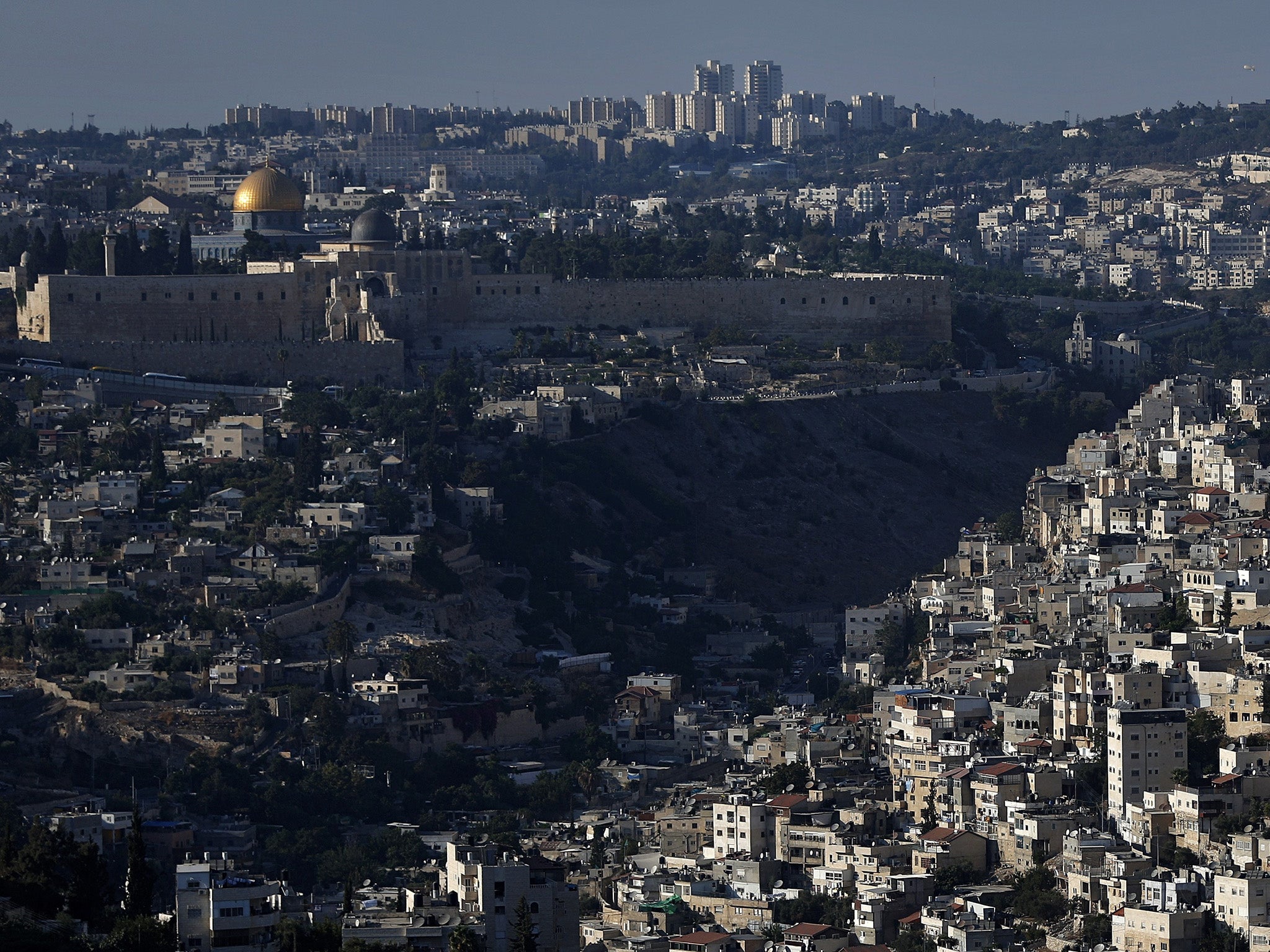East Jerusalem land case allows Israeli settlers to move into Arab district of Batin al-Hawa
A seemingly dry legal ruling is another blow to hopes for a two-state solution

While Palestinians in the Batin al-Hawa area of East Jerusalem were marking the Muslim Eid al-Adha holiday last week, unwelcome Israeli neighbours were busy renovating the apartments they had moved into in September.
They say they purchased the properties legitimately but Palestinians dispute that. Whatever the case, settlers from the Ateret Cohanim organisation, which encourages Jews to live in Arab areas, now occupy all but one flat in a strategic five-storey structure and are consolidating another advance in their effort to “redeem” Batin al-Hawa as a Jewish area.
In a narrow street Palestinians seemed overwhelmed as two Israeli guards ordered them to direct their children to make way for settlers to pass. “When I see what is happening in my neighbourhood, the place where my children play, and I see that the settlers are taking everything, it makes me feel like I am being choked – like I am under house arrest,” said Zuheir Rajabi, a community activist.
As the settlers refurbish homes, their lawyers are busy reshaping the neighbourhood in the shadow of Islam’s third-holiest site, Haram al-Sharif. The area includes the Aqsa mosque but it is also revered by Jews as the site of the Temple Mount, one of Judaism’s most sacred sites. Nine families in Batin al-Hawa are being sued at the behest of Ateret Cohanim for having built their homes illegally on land that has belonged to the Moshe Benvenisti religious trust since the late-19th century, says Mr Rajabi, who is among them. Two families that have lived in their homes since 1948 face imminent eviction from the area Ateret Cohanim says once housed the synagogue of the trust.
Daniel Seidemann, director of the Israeli NGO Terrestrial Jerusalem, say this is “the first significant new incursion into the fabric of a Palestinian neighbourhood” since the 1990s. Eyal Raz, who is responsible for monitoring the growth of settlements for the dovish Peace Now organisation, says the situation in Batin al-Hawa diminishes the possibility of any two-state peace compromise in the future. “At this moment Batin al-Hawa is the front line in the settlers’ battle to make sure there isn’t a political solution,” he said.
The legal actions are made possible by a law approved by the Knesset in 1970 that allows Israeli Jews to reclaim properties in East Jerusalem, an area that was captured by Jordanian forces during the 1948 Arab-Israeli war. East Jerusalem Palestinians are barred from recovering their property in West Jerusalem that came under Israeli rule during the same war.
On the basis of the legislation a Jerusalem district court ruled in February that land parcels totalling 5,200 sq metres in Batin al-Hawa that were owned at the end of the 19th century by the religious trust on behalf of a community of Yemenite Jewish immigrants should revert to the trust, which is now guided by Ateret Cohanim personnel.
The ruling potentially paves the way for the eviction of 88 Palestinian families living on that land, Mr Raz says. The last of Yemenite Jewish community left the area amid the Arab-Jewish tensions that accompanied the 1936-39 Arab revolt against British rule.
Daniel Luria, executive director of Ateret Cohanim, concedes that “tens of families may be affected” by the court’s ruling in favour of the religious trust. “If the court deemed these were illegal squatters then it doesn’t make a difference if it’s a synagogue or another type of public building of the Yemenite Jews,” he said. “Each particular building and particular Arab family would be a case in itself.”
He said he expected that in many cases, the Arab families would agree to reach a financial arrangement in exchange for leaving. Offering this, he insisted, is “going beyond the letter of the law”.
Mr Rajabi says the settlers often use psychological pressure on Palestinians to persuade them to leave. In one case, he said, a settler representative threatened a Palestinian who had only a temporary permit to be in Jerusalem and who was living in a home targeted by the settlers, “You are here illegally, I can throw you to Hebron.”
Mr Rajabi said the same settler representative had telephoned him to say he knew that the activist had once served a prison sentence for forging documents, adding: “Your situation is difficult. It would be worth your while to sell.”
Mr Luria denied that Ateret Cohanim personnel pressure Palestinians to leave or harass them.
One Palestinian who says he will not budge no matter how much money he is offered is Abdullah Abu Nab, a 58-year-old building contractor who remained in his two-room flat as settlers moved into most of his building in May. That was after his nephews, who lived in three other flats, reached a financial settlement with Ateret Cohanim. A father of eight-year-old twins, whose family has paid rent to a Palestinian family to live on the site since 1948, he now faces eviction by 25 Oct. “I didn’t take their money and I won’t take it,” Mr Abu Nab said. “I was born here. Before I came into the world I was in my mother’s womb in this house.”
Defending the evictions, Mr Luria said they are merely the result of implementation of the law. Restoring such property to Jews, he said, is part of the “redemption process” that he believes will culminate with divine restoration of the ancient Temple in Jerusalem.
Join our commenting forum
Join thought-provoking conversations, follow other Independent readers and see their replies
Comments
Bookmark popover
Removed from bookmarks